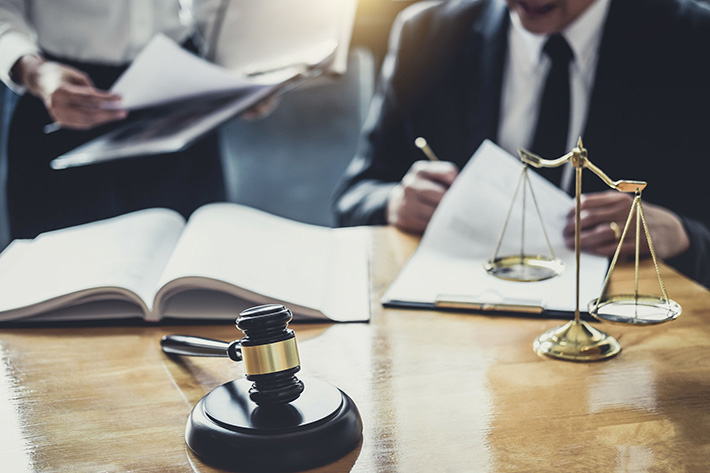Securities markets need broad public confidence in their integrity to function correctly. Without confidence in the markets, trading securities would entail an unacceptably high level of risk with untold consequences. Because most of the world’s investors believe that U.S. securities markets are well-regulated and supervised by competent compliance professionals, the U.S. markets enjoy safe haven status compared to securities markets in other parts of the world.
The Financial Industry Regulatory Authority (FINRA) is a private, not-for-profit company created by the securities industry as a form of self-regulation.
As such, FINRA does not have the power to directly enforce compliance with securities laws, such as the ban on insider trading. However, FINRA works hand-in-hand with the Securities Exchange Commission (SEC) to prevent securities fraud and abuse.
When FINRA discovers cases of fraud, it reports them to the SEC. It is then the SEC’s job to bring civil litigation against offenders. These lawsuits sometimes recover funds for the victims. In addition, the SEC evaluates if offenses constitute criminal acts. When such a determination is made, the SEC refers the matter to federal prosecutors, who will bring criminal charges against offenders if the evidence is strong enough.
FINRA works under the auspices of the SEC. The organization handles specific compliance issues that bolster the SEC’s operations, including developing rules, investigations and education for securities pros and the public.
FINRAs Roles in Protecting the Public’s Money
Writing Rules
FINRA employs securities experts who understand markets and market manipulation and have the skills needed to craft sensible regulations. The organization works closely with the SEC in addressing securities misconduct with rules that protect investors. For example, FINRA has created regulations that address “churning”.
Unethical securities brokers “churn and burn” their clients by placing unnecessary trades just to generate sales commissions. They may do this by convincing clients to over trade using deceptive techniques that take advantage of less experienced market participants. In more egregious cases, brokers place trades without their client’s knowledge that benefit the broker and hurt the client.
How do securities professionals know at what point they are conducting legitimate trades and what constitutes over trading and, in some cases, fraud? FINRA writes the rules brokers must follow and requires all securities professionals to take courses and pass tests that demonstrate they understand their legal obligations.
Enforcement
In conjunction with the SEC, FINRA monitors the markets and activities of securities professionals. It looks for red flags that indicate wrongdoing, such as excessive trading by brokers or strange moves in the stock market by people with insider knowledge.
For example, FINRA’s website tells the story of an enforcement action against an egregious case of churning. In that instance, a broker defrauded a 77-year-old blind widow with egregious churning that resulted in 700 trades across 200 securities, costing her $184,000. FINRA identified the suspicious behavior, collected evidence and referred the matter to the SEC for prosecution.
Fostering Market Transparency
Investors rely on transparency to make informed investment decisions. FINRA creates regulations that require the securities industry to provide disclosures to investors that make the underlying risks of certain investments transparent. In addition, securities sellers must only recommend investments that are suitable for the investor’s risk tolerance and disclose their legal responsibilities to investors.
FINRA’s Five Steps to Protecting Market Integrity
FINRA follows five principals in protecting market integrity. These help define its mission and focus its actions. FINRAs five steps are vital to its success and include the following:
• Deter misconduct by enforcing the rules
• Discipline those who break the rules
• Detect and prevent wrongdoing in the U.S. markets
• Educate and inform investors
• Resolve securities disputes
FINRA plays a vital role in the success of the U.S. financial system. Investing underpins the American economy. Because investment is so vital, both the government and the securities industry work hard to protect it. A key part of protecting the securities industry is maintaining the public perception that markets are transparent and safe.
As a private not-for-profit company, FINRA does not engage directly in the prosecution of offenders however, it can bring sanctions against wrongdoers and works hand-in-hand with the SEC to build cases against fraudsters. In addition, it endeavors to educate and inform investors and can arbitrate securities disputes.
Because of FINRA’s vital work, the U.S. stock markets are trusted by investors around the world.
The SEC and FINRA were established to enforce the regulation of securities firms and the goal of securities fraud lawyers is to collect money damages for investors. If you have suffered economic losses due to mistakes by brokers, you need the assistance of an experienced FINRA attorney.
The attorneys at the Law Offices of Peter C. Rageas are the ideal choice to recover your losses. We have been representing and protecting our clients from fraudulent stockbrokers, investment fraud and Ponzi schemes for over 20 years. Call Today!

